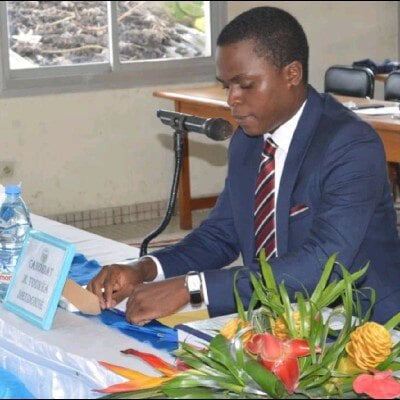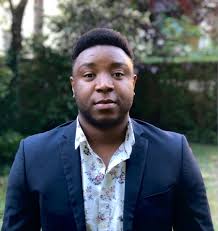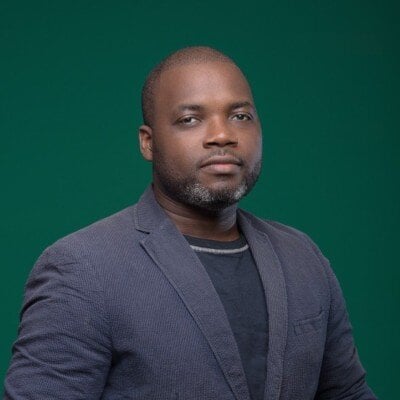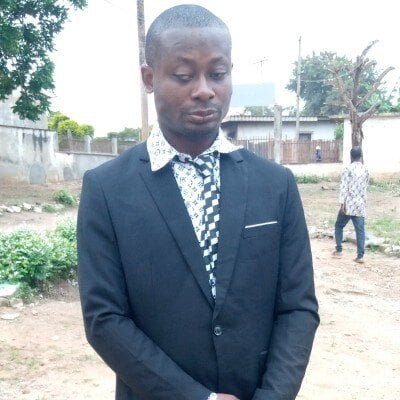June 05 Day

8:00 GMT - Symposium begins
Central Africa (Yaoundé): 9:00 am, East Africa (Nairobi): 11:00 am, Paris: 10:00 am, Washington DC: 4:00 am, China (Beijing): 4:00 pm
Welcome address
Moustapha HOYECK (Howard University)
Introduction to the day's work
Doctor Ambroise DJERE (Cheikh Anta Diop University)

8:15 GMT - Presentations begin
Central Africa (Yaoundé): 9h15, East Africa (Nairobi): 11h15, Paris: 10h15, Washington DC: 4h15, China (Beijing): 16h15
Axis
Empowerment and Innovation: Youth and Women for African Development
Moderators
Doctor Ambroise DJERE (Cheikh Anta Diop University)
Gatou DIOP (Cheikh Anta Diop University)
Moustapha HOYEK (Howard University)
Moderators chat
Linda SILIM MOUNDENE (Howard University)
Docteur Fadel BAH (University of Ngaoundéré)

13h00 - 15h00 GMT - Round table discussions
Central Africa (Yaoundé): 2:00 pm - 4:00 pm, East Africa (Nairobi): 4:00 pm - 6:00 pm, Paris: 3:00 pm - 5:00 pm,
Washington DC: 9:00am - 11:00am, China (Beijing): 9:00pm - 11:00pm
empower young people and communities in Africa and support
communities in Africa and support economic sustainability?
Presentation themes
Empowering Africa: Challenging stereotypes, amplifying voicesand shaping the future - Hanseth Fondzenyuy, Master in History, University of Dschang, Cameroon
Building Africa through its youth: Implementing the YouthBank model for inclusive decision-making - Reuben Amewuda, M.Phil. in Agribusiness Management at Kwame Nkrumah University of Science and Technology in Kumasi, Ghana
De la participation informelle des femmes aux processus de paix en Afrique : le cas de la crise anglophone au Cameroun - Emerence Momo Tchinda Imelda, student researcher, doctoral student in political science at the University of Douala
Youth Manifesto for Africa's Development - Dr Ambiliasia MOSHA, teacher-researcher from Tanzania
Between tradition and development: rethinking the role of women as levers for Africa's development - Cécile NGARDJI YENISAGNA, Doctoral student in sociology at the University of Dschang
Intervenants
Mariamar Conon

Project Management and Gender Studies Specialist | Youth Engagement Officer | Corporate and Digital Communication Expert | Blogger | Feminist
Dieudonné Toukea

Stéphane Ondo Ze

Dr. ONDO ZE, Expert in Geography | Head of Research at INRAE | Initiator of the African Network of Young Researchers in Land Sciences
Geopolitics and ecology are at the heart of what I do. As a dedicated geographer, I devote my expertise and analysis to the world of research and education, as an active collaborator in the Habiter EA 2076 Laboratory and the Centre d'analyse et d'investigation en géosciences politiques et prospective.
Core competencies:
- Research: As a specialist in data processing and analysis, I have the ability to uncover crucial information and transform it into effective action plans.
- Pedagogy: With solid teaching experience, I master the art of simplifying elaborate concepts while captivating learners' interest.
- Communication: With a talent for written and oral expression, I produce documents of great clarity and precision.
- Project coordination: With a methodical and structured approach, I successfully manage and execute large-scale initiatives.
Notable achievements:
- As a researcher at INRAE, I lead an ambitious project on bioclusters in the Occitanie region.
- As founder and moderator of the Réseau Africain des Jeunes Chercheurs en Sciences du Territoire, I am committed to the advancement of research and sustainability on the African continent.
- Through my YouTube channel "Les Baïs de l'Ogooué", I offer a glimpse of my thoughts and inspirations on themes that are dear to me.
I'm driven by the desire to contribute to innovative initiatives relating to ecology and sustainable development.
I invite you to contact me to discuss my research or future projects.
Ablo Paul Igor Hounzandji

Data Scientist | Artificial Intelligence | Digital Agriculture | Serial Entrepreneur
Agence Francophone de l'Intelligence
Intelligence
Achille Kameni Ngaleu
Daily workshops

8:00 - 10:00 GMT - Leveraging Strategic Collaborations, Institutional Partnerships, and Innovation in Higher Education for Sustainable Development in Africa
Central Africa (Yaoundé): 9:00 AM - 11:00 AM, East Africa (Nairobi): 11:00 AM - 1:00 PM, Paris: 9:00 AM - 11:00 AM, Washington DC: 3:00 AM - 5:00 AM, China (Beijing): 4:00 PM - 6:00 PM

6:00 pm - 8:00 pm GMT - Data collection and management
Central Africa (Yaoundé): 19h-21h, East Africa (Nairobi): 21h-23h, Paris: 20h-22h, Washington DC: 14h-16h, China (Beijing): 02h-04h

6:00 pm - 8:00 pm GMT - Writing and publishing in research: choosing scientific blogs
Central Africa (Yaoundé): 19h-21h, East Africa (Nairobi): 21h-23h, Paris: 20h-22h, Washington DC: 14h-16h, China (Beijing): 02h-04h

6:00 pm - 8:00 pm GMT - Designing and writing your research project
Central Africa (Yaoundé): 19h-21h, East Africa (Nairobi): 21h-23h, Paris: 20h-22h, Washington DC: 14h-16h, China (Beijing): 02h-04h





